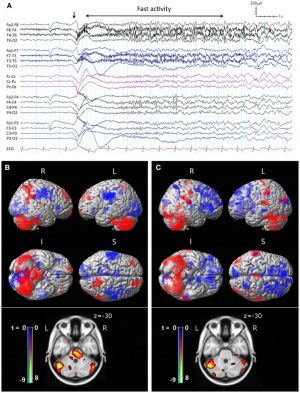Wikisage, the free encyclopedia of the second generation, is digital heritage
Lennox-Gastaut syndrome
Lennox–Gastaut syndrome (LGS[1]) is a difficult-to-treat form of childhood-onset epilepsy that most often appears between the second and sixth year of life. LGS is characterized by a triad of signs including frequent seizures of multiple types, an abnormal EEG pattern of less than 2.5 Hz slow spike wave activity,[2]
LGS children with a history of perinatal hypoxia or other perinatal event have earlier age of onset of seizures[3]
Links
LGS may evolve from West syndrome
Endoscopic epilepsy surgery: Emergence of a new procedure
Surgical options for patients with Lennox-Gastaut syndrom epilepsia suppl. 55:21 4:21-8. doi: 10.1111/epi.12742.
Rufinamide
Clobazam

Clobazam was approved by FDA on 2011 as adjuntive treatment of seizures associated with LGS in patients 2 year and older [4]
stable dosage of clobazam for LGS are associated Epilepsia 55: 558(2014)